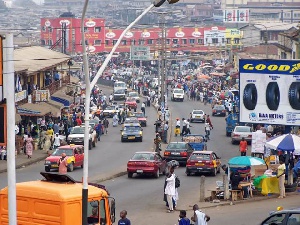The Financial Accountability and Transparency-Africa (FAT-Ghana), with funding from Oxfam America, has compiled and launched the Citizens’ Manifesto, in Accra.
Mr Francis Darko Asare, the Programmes Manager at FAT-Ghana, said the document was considered as a very important contribution towards improving governance, service delivery, poverty reduction and the achievement of the Sustainable Development Goals.
“We, therefore, expect the elected government to adopt our demands as part of its programme of governance in the next four years,” he said.
Mr Asare, who presented the highlights of the 25-paged document, at a media launch, said the Citizens’ Manifesto, which covers 2017 to 2020, contains an inventory of the concerns and wishes of Ghanaians, which they want the incoming Government to address during its tenure of office.
He said it was to help in finding solutions to key governance challenges facing the nation, accelerate the growth of the economy and promote inclusive human development.
He said the development of the document was inspired by the preamble of the nation’s Constitution, which required the establishment of a framework of governance to secure the posterity of liberty, equality opportunity and prosperity.
It also highlights how the national economy should be managed to maximise the rate of economic development and to also secure the maximum welfare, freedom and happiness of every person in the country.
It also addresses the provision of adequate means of livelihood and suitable employment, as well as public assistance to the needy.
Mr Asare said five thematic governance challenges, which involves Accountability, Transparency, Inclusiveness, Equal Opportunities and Human Development, emerged as the major issues after an initial team of experts were convened to review the extensive national survey conducted by FAT-Africa.
Additional issues, which include; Good Financial Governance and Accountability, Public Sector Corruption, Transparency in Governance, Funding Political Parties, Inclusiveness and Equal Opportunity for all, and an Effective Sanctions Regime, also emerged from the five thematic governance challenges.
He said critical issues, such as Human Development and Pro-poor Programmes, Good Quality and Purposeful Education, Youth employment, Accelerated agriculture development, Rapid Industrialisation and Tourism Development, Accelerated Economic Growth, Environmental Protection and Climate Change, Human Rights and Rule of Law, Improved Health Services for all, as well as Quality Public Infrastructure, were also considered.
He said the survey revealed that, unemployment had assumed an urban phenomenon, where the proportion of the youth who were inactive and out of education were more than one-third of those in rural areas.
It was established that about 14 per cent of the youth fall into the “Not in Employment, Education or Training” category and were thus vulnerable to violent behaviour, which could pose a security threat.
Mr Asare said based on the stark realities elected governments were, to among other things, develop a decent work concept for the country, which encapsulated fair income for all, job security, social protection for families, freedom to organise into social and trade unions and equality of opportunities.
He said the document also demanded that mechanisms be urgently put in place to enhance the quality of trained teachers in all public and private schools, provide adequate and timely teaching and learning aids, as well as school infrastructure to enhance teaching and learning.
It also seeks to ensure that the Ghana Education Service strengthens its monitoring and supervisory role as well as compliance with educational standards in both public and private schools.
It urges elected Governments to introduce diverse policies, aimed at food security for all Ghanaians, tackle the problematic land tenure systems that leaves the farmer attached to small holder farms with limited incentives to invest in farms.
They must also introduce measures that would place farmers in the position to afford improved technology and also venture into commercial agriculture so that young farmers would remain attracted to farming rather than leaving the sector.
He said Ghanaians demanded that key social protection intervention programmes, such as the Livelihood Empowerment Against Poverty, Capitation Grants and School Feeding Programme, National Health Insurance Scheme and Labour Intensive Public Works be put in place, to address extreme poverty and other human development deficits.
General News of Wednesday, 28 September 2016
Source: GNA
'Citizen’s Manifesto’ launched to highlight Concerns of Ghanaians
Entertainment
















